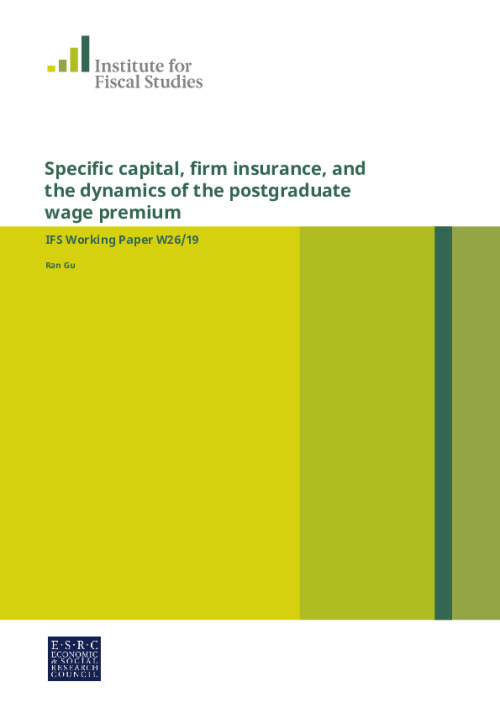Postgraduate degree holders experience lower cyclical wage variation than those with undergraduate degrees. Moreover, postgraduates have more specific human capital than undergraduates. Using an equilibrium search model with long-term contracts and imperfect monitoring of worker effort, this paper attributes the cyclicality of the postgraduate-undergraduate wage gap to the differences in specific capital. Imperfect monitoring creates a moral hazard problem that requires firms to pay efficiency wages. More specific capital leads to lower mobility, thereby alleviating the moral hazard and improving risk-sharing. Estimates reveal that specific capital explains the differences both in labour turnover and in wage cyclicality across education groups.
Authors

Research Associate University of Essex
Ran is an IFS Research Associate and a Lecturer at the University of Essex interested in understanding household and firm behaviour.
Working Paper details
- DOI
- 10.1920/wp.ifs.2019.1926
- Publisher
- The IFS
Suggested citation
Gu, R. (2019). Specific capital, firm insurance, and the dynamics of the postgraduate wage premium. London: The IFS. Available at: https://ifs.org.uk/publications/specific-capital-firm-insurance-and-dynamics-postgraduate-wage-premium (accessed: 19 April 2024).
More from IFS
Understand this issue

Scottish Budget 2024-25: IFS analysis

IFS response to the Prime Minister's proposed Advanced British Standard education reform
4 October 2023

Big firm, little firm: are differences between companies driving inequality and holding back growth?
30 August 2023
Policy analysis

Recent trends in public sector pay
26 March 2024

Gap between higher- and lower-paid public sector workers falls by more than a third since 2007 as doctors and experienced teachers have faced unprecedented pay cuts
26 March 2024

The IFS Scottish Budget Report – 2024–25
22 February 2024
Academic research

Higher Education Access and Funding: challenges and policy options

Labour market inequality and the changing life cycle profile of male and female wages
15 April 2024

Interpreting cohort profiles of lifecycle earnings volatility
15 April 2024
